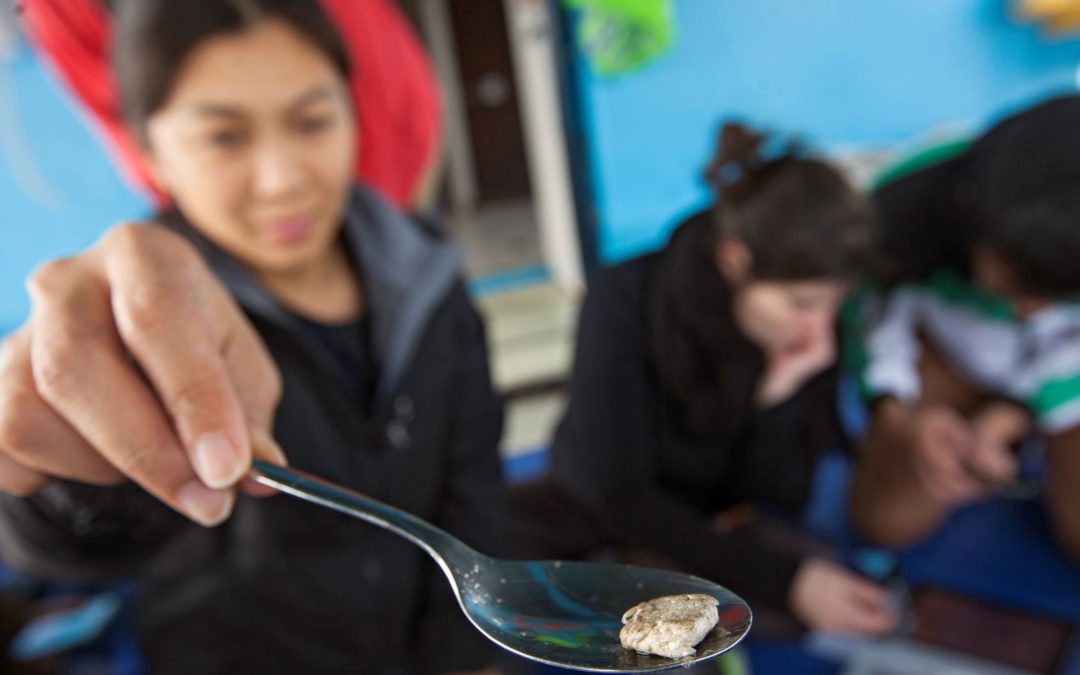
by Nazanin Meshkat | 12 Feb 2021 | Decoders, Environment, Health and Wellness, University of Toronto Journalism Fellows
They are far smaller than a human hair. But microplastics have been found in newborn babies and pose a growing threat to humans’ health. A researcher displays a piece of polystyrene foam found in a thick liquid made up of sea water, diatom phytoplankton and...
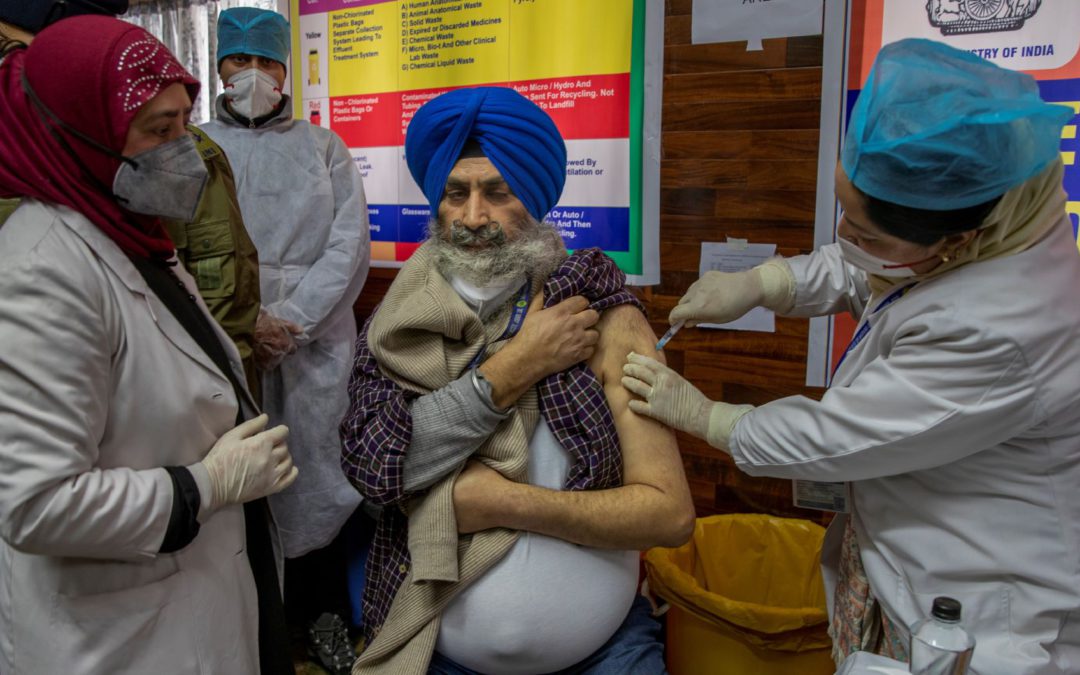
by Ben Barber | 8 Feb 2021 | Asia, Health and Wellness
Sprawling and populous, India presents unique healthcare challenges. Its vast COVID-19 vaccination program offers an example to even rich nations. A hospital staff member receives a COVID-19 vaccine in Srinagar, Indian-controlled Kashmir, 16 January 2021. (AP Photo/...
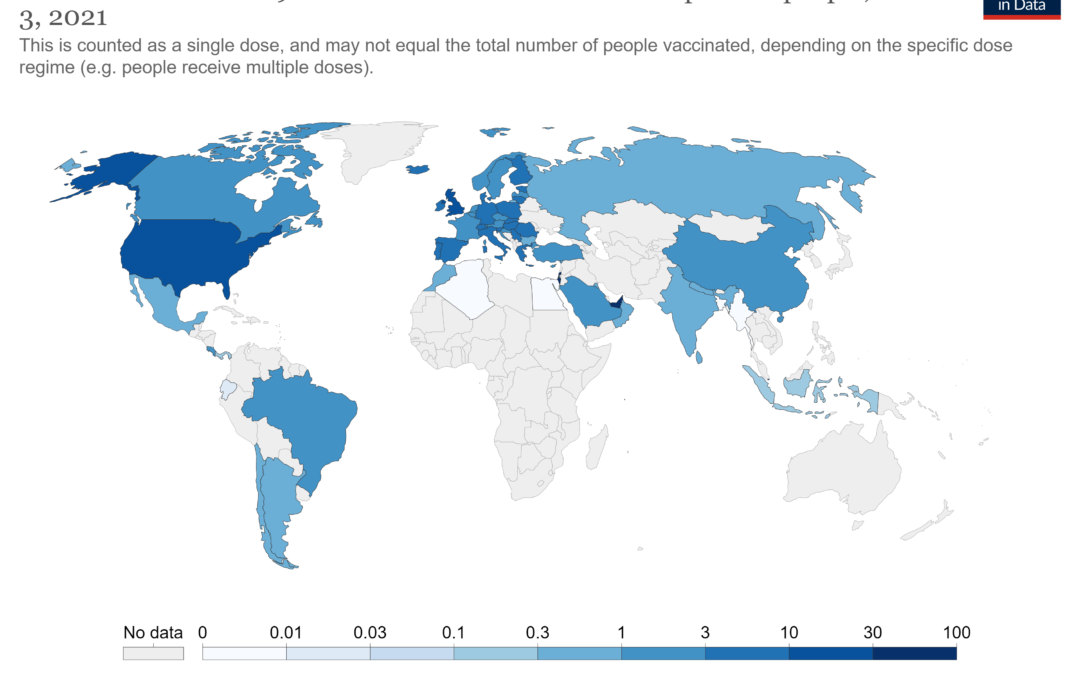
by Jeremy Solomons | 5 Feb 2021 | Economy, Educators' Catalog, Health and Wellness, Human Rights, World
COVID-19 vaccination programs are moving slowly in poor nations, threatening the world’s health and raising risks for rich countries’ economies. From ourworldindata.org Sometime very soon, the world will reach a significant milestone in its battle to...
As nations struggle with the terrible health and economic consequences of COVID-19, the rush is on to roll out vaccines to as many people as possible. Leaders of developed economies might be excused for protecting their citizens above all — if it didn’t mean leaving out masses of people in the Global South. Jeremy Solomons taps official data and experts to spell out the dangers for both poor and rich nations alike if steps are not taken to ensure vaccines reach the four corners of the world. Ask students how they would ensure the equitable distribution of COVID-19 vaccines — and whether they would be willing to help pay for it.
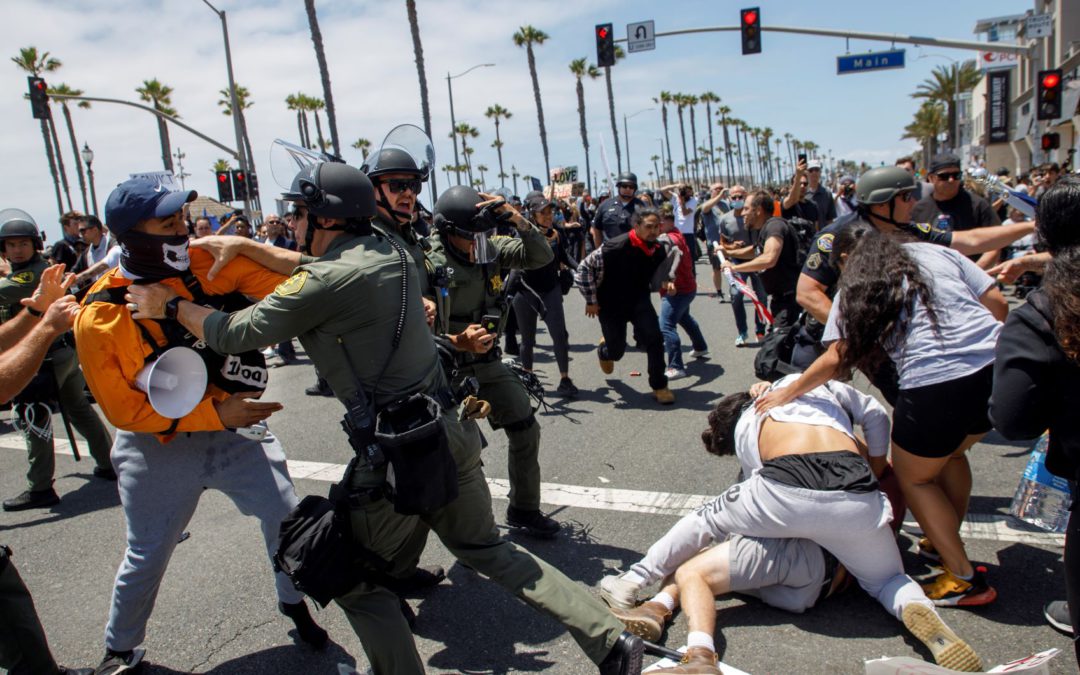
by Vicki Flier Hudson | 4 Feb 2021 | Donald Trump, Educators' Catalog, Future of Democracy, Health and Wellness, Personal Reflections
Playing in a rock band helped me see that in these polarized times, we need to listen to hateful views to heal divisions and save democracy. Black Lives Matter protesters brawl with supporters of then U.S. President Donald Trump, Huntington Beach, California, 6 June...
It’s a common lament that we live in polarized times. Echo chambers, confirmation bias, troll factories — these are terms we’re all too familiar with now because they identify a problem that is besetting politics and democracy. Vicki Flier Hudson tackles the issue head-on, but unlike so many writers, she takes off the ideological blinders to offer a lesson in empathy — replete with mention of her rock band. She offers techniques at the end of her article that all of us can use. Teachers can ask students to identify an abhorrent point of view and explain why someone could possibly hold that perspective.
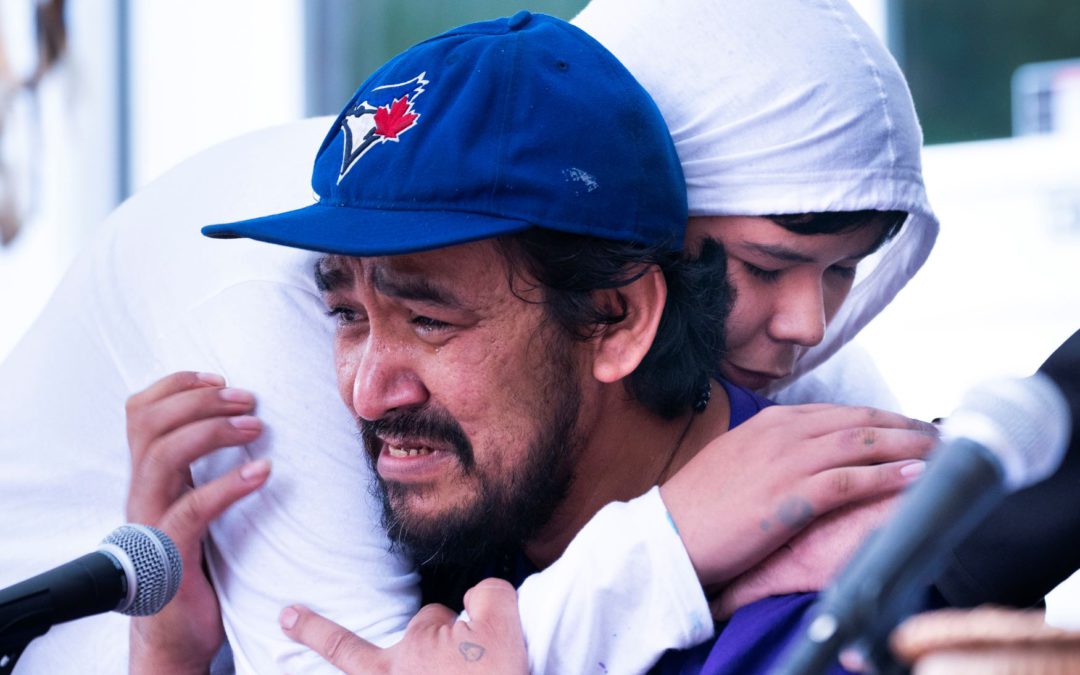
by Natasha Comeau | 13 Jan 2021 | Americas, Educators' Catalog, Health and Wellness, Human Rights
Overcrowding, a flow of migrants, lack of resources — so many reasons Indigenous communities in Canada and elsewhere are vulnerable to COVID-19. Carol Dube, husband of Joyce Echaquan, is hugged by one of his sons as he breaks down while reading a statement in...
COVID-19 is a monumental news story, and Natasha Comeau has trained her reporting lens on Indigenous communities in Canada to capture a larger truth — that underprivileged peoples around the world are suffering disproportionately from the coronavirus. Her reporting is supported by an interview with an expert who predicted how many ventilators hospitals would need for COVID-19 by studying the H1N1 virus, which struck the United States in 2009. Comeau’s story is an example of how scientific research, on the surface obscure, is actually relevant to everyday concerns. Like MacCorkle, she uses simple language that non-experts can understand, ensuring the piece resonates with a broader audience.
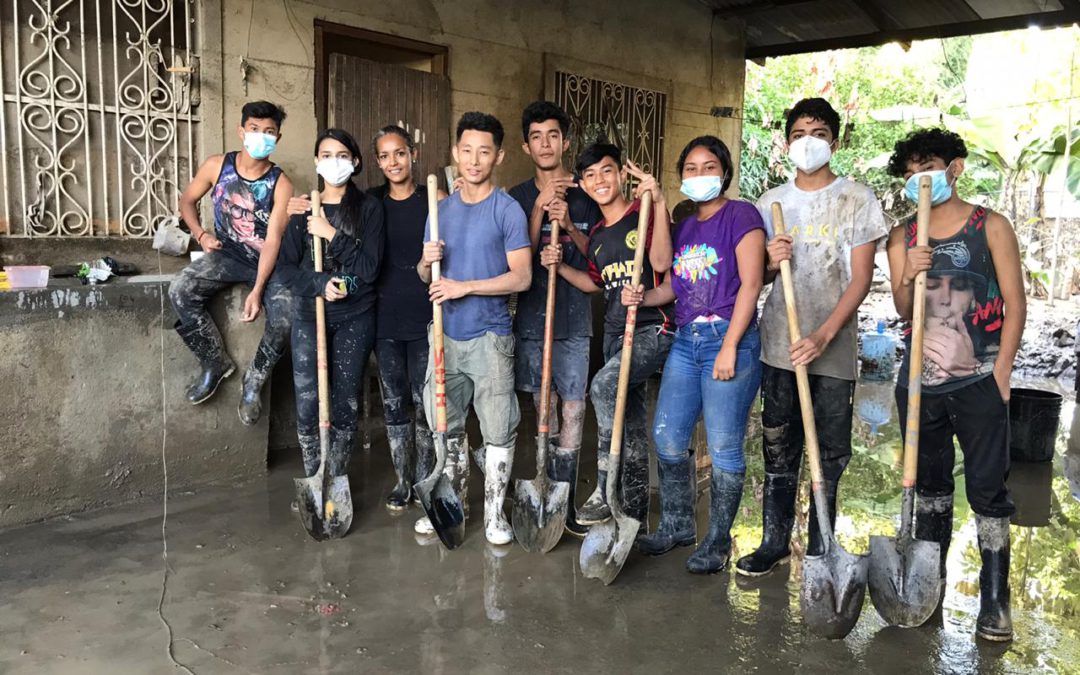
by Natalie Jesionka | 31 Dec 2020 | Americas, Health and Wellness, University of Toronto Journalism Fellows
A Honduran nonprofit that builds schools and tackles poverty hopes to outlast the pandemic. Its financial hardship is shared by nonprofits globally. Shin Fujiyama, fourth from left, and colleagues in Honduras (Photo courtesy of Shin Fujiyama) Shin Fujiyama has spent...
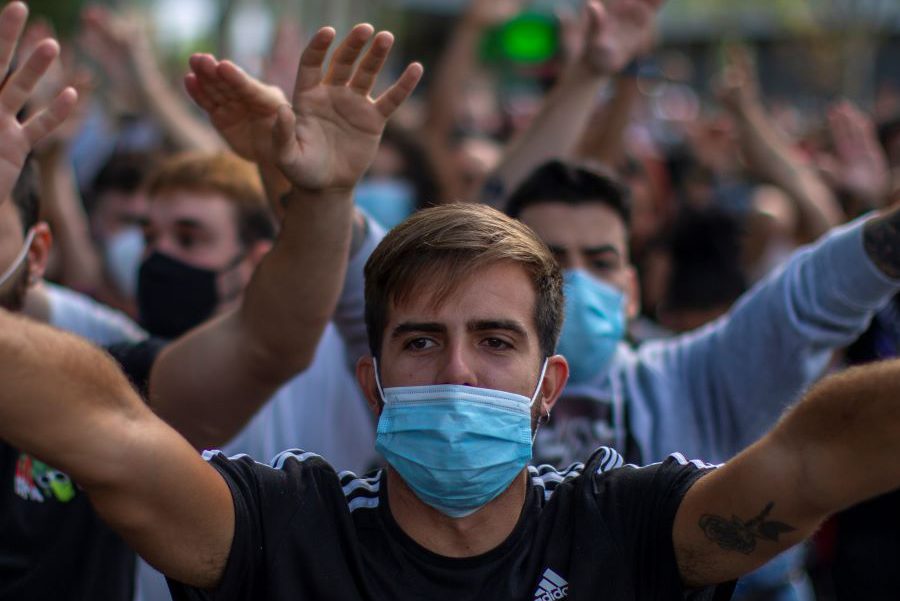
by Helen Womack | 29 Dec 2020 | Health and Wellness, Personal Reflections
For some, COVID-19 has meant grief, for others inconvenience. But the year has made us ask: Should we go back to “normal” when the future arrives? Protesters demanding more resources for public health and against social inequality, Madrid, Spain, 27 Septmber 2020 (AP...
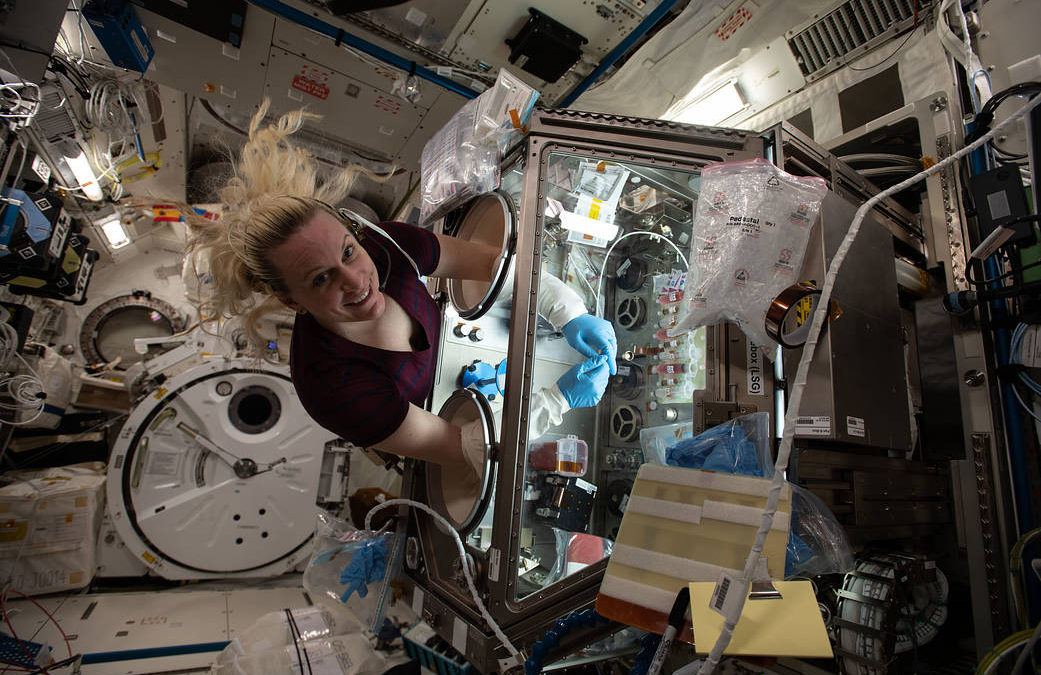
by Tira Shubart | 21 Dec 2020 | Climate change, Discovery, Environment, Health and Wellness, Space, Technology
It’s hundreds of miles above Earth. But the International Space Station is a scientific laboratory that is bringing myriad benefits to humans far below. NASA astronaut Kate Rubins conducts biomedical research to help understand the aging and weakening of heart...
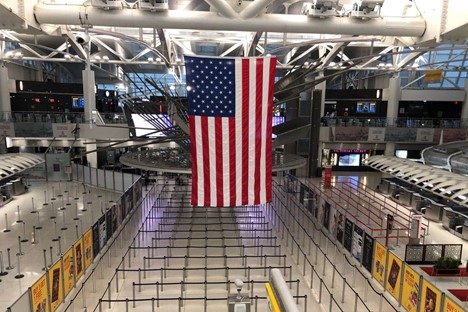
by Jasmine Li | 1 Dec 2020 | China, Discovery, Educators' Catalog, Health and Wellness, Identity, Student Posts, United States, Westover School, Youth Voices
COVID-19 left me in limbo in the United States, full of fear and anger. Then I returned home to China to face criticism before reuniting with my family. An empty John F. Kennedy International Airport in New York (All photos by Jasmine Li) So this is where I am going...
The coronavirus pandemic has put strains on students, their families, schools, entire communities. But Jasmine Li, a Chinese student at Westover School in the United States, provides a first-person account of the special difficulties facing foreign nationals caught in limbo as COVID-19 triggered global travel restrictions. Li cannot return to her temporary home at school, and when she finally makes it home to China, she discovers some compatriots consider her a traitor and urge her to leave. Adolescence can be a difficult period of self-discovery, but Li’s painful experiences are the product of a globalized world that, in normal circumstances, offers extraordinary opportunities but which, during a pandemic, sees forgotten borders re-emerge. Ask each student to describe their most difficult moment during the pandemic. How do their experiences compare?
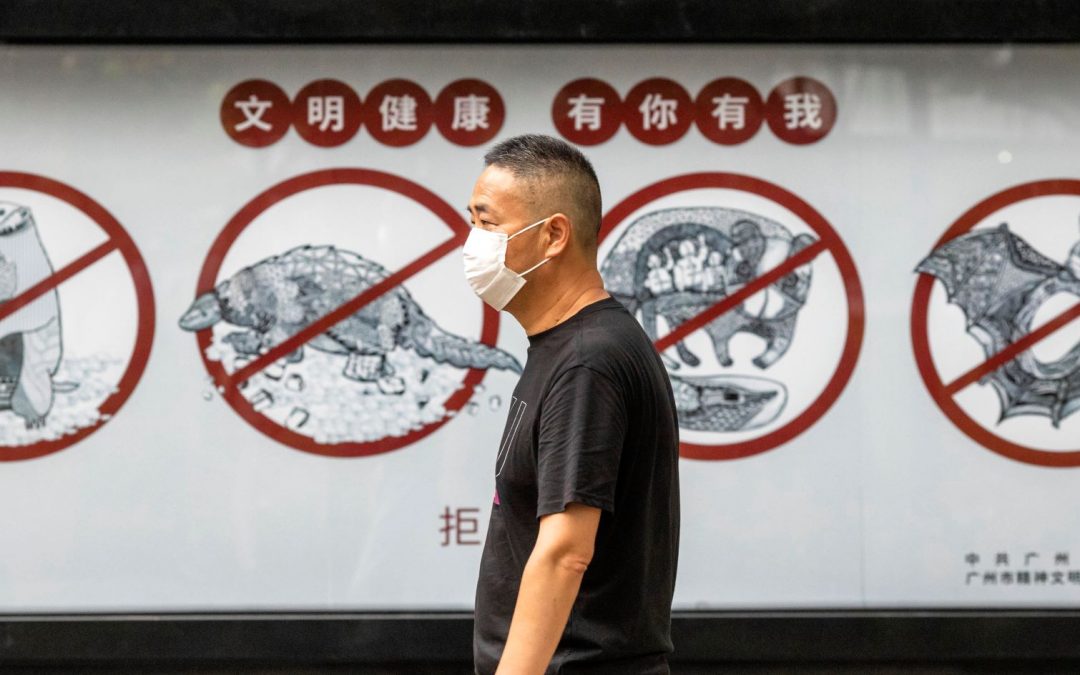
by Sarah Edmonds | 20 Nov 2020 | Educators' Catalog, Health and Wellness
Experts had foreseen a coronavirus pandemic, but COVID-19 has still inflicted untold damage on the world. Will we draw the right lessons this time? A man walks past a poster warning that consuming wildlife is illegal, in Guangzhou, China, 25 May 2020. (EPA-EFE/ALEX...
The coronavirus has given us mountains of data and an escalating mortality toll. News Decoder correspondent Sarah Edmonds moves beyond real-time developments and the numbers to ask world-class experts — a lead investigator for one of the top vaccine trials, a research fellow at Cambridge University and an official at the World Health Organization — what lessons the world will draw from the pandemic. Often, solid reporting boils down to asking simple questions and then finding the right people for answers. Edmonds follows that script in her handling of a complex topic. A model for our students.










